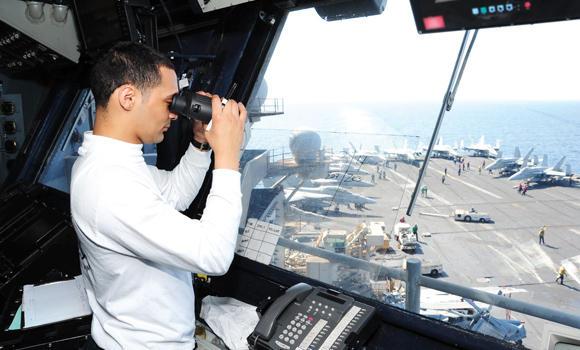
403
Sorry!!
Error! We're sorry, but the page you were looking for doesn't exist.
Kurdish defeat at Kobani 'inevitable'
(MENAFN- Arab News) ANKARA: Kurdish forces defending Kobani urged a US-led coalition to escalate airstrikes on Islamic State insurgents who tightened their grip on the Syrian town at the border with Turkey on Saturday.
A group that monitors the Syrian civil war said the Kurdish forces faced inevitable defeat in Kobani if Turkey did not open its border to let through arms something Ankara has so far appeared reluctant to do.
A Kurdish military official said Islamic State had brought extra tanks and artillery to the front lines while street-to-street fighting was making it harder for the warplanes to target Islamic State positions.
While Islamic State has been able to reinforce its fighters the Kurds have not. Islamic State has besieged the town to the east south and west meaning the Kurds' only possible supply route is the Turkish border to the north.
The Obama administration is boxed in by its promise to limit US military engagement against the terror group making it tough to agree to Turkey's condition for joining the fight.
Turkey and other US allies want the US to create a no-fly zone inside Syrian territory. Doing so would mean embracing one of two options US President Barack Obama has long resisted: Cooperating with Syrian President Bashar Assad's government or taking out its air defenses action tantamount to war.
Airstrikes alone might not prevent militants from carrying out a massacre at a Kurdish border town now under attack but for now the US isn't steering a new course in its expanded one-month counterterrorism effort in Iraq and Syria.
Demands are rising for the creation of a secure buffer on the Syrian side of its frontier with Turkey.
Any decision by Gulf states to send in troops would depend on whether Turkey decides to use its own ground forces according to Mathieu Guidere professor of Middle East Studies at Toulouse University.
'A ground intervention from Arab countries depends on the Turkish decision to engage or not ground troops. We are likely to see Arab boots on the ground if Turkish forces engage in the Syrian territory' he said.
Abdulkhaleq Abdulla political science professor at the University of the Emirates said: 'America is far from frank about its true intentions.'
He added: There is the constant fear that every time the US touches the Middle East it makes things worse and instead of solving regional problems it invariably creates bigger ones.'
Abdulla said 'Iran has a proven record of taking advantage of America's mistakes. It could be once again the net beneficiary of this campaign' against the radical fighters.
A group that monitors the Syrian civil war said the Kurdish forces faced inevitable defeat in Kobani if Turkey did not open its border to let through arms something Ankara has so far appeared reluctant to do.
A Kurdish military official said Islamic State had brought extra tanks and artillery to the front lines while street-to-street fighting was making it harder for the warplanes to target Islamic State positions.
While Islamic State has been able to reinforce its fighters the Kurds have not. Islamic State has besieged the town to the east south and west meaning the Kurds' only possible supply route is the Turkish border to the north.
The Obama administration is boxed in by its promise to limit US military engagement against the terror group making it tough to agree to Turkey's condition for joining the fight.
Turkey and other US allies want the US to create a no-fly zone inside Syrian territory. Doing so would mean embracing one of two options US President Barack Obama has long resisted: Cooperating with Syrian President Bashar Assad's government or taking out its air defenses action tantamount to war.
Airstrikes alone might not prevent militants from carrying out a massacre at a Kurdish border town now under attack but for now the US isn't steering a new course in its expanded one-month counterterrorism effort in Iraq and Syria.
Demands are rising for the creation of a secure buffer on the Syrian side of its frontier with Turkey.
Any decision by Gulf states to send in troops would depend on whether Turkey decides to use its own ground forces according to Mathieu Guidere professor of Middle East Studies at Toulouse University.
'A ground intervention from Arab countries depends on the Turkish decision to engage or not ground troops. We are likely to see Arab boots on the ground if Turkish forces engage in the Syrian territory' he said.
Abdulkhaleq Abdulla political science professor at the University of the Emirates said: 'America is far from frank about its true intentions.'
He added: There is the constant fear that every time the US touches the Middle East it makes things worse and instead of solving regional problems it invariably creates bigger ones.'
Abdulla said 'Iran has a proven record of taking advantage of America's mistakes. It could be once again the net beneficiary of this campaign' against the radical fighters.

Legal Disclaimer:
MENAFN provides the
information “as is” without warranty of any kind. We do not accept
any responsibility or liability for the accuracy, content, images,
videos, licenses, completeness, legality, or reliability of the information
contained in this article. If you have any complaints or copyright
issues related to this article, kindly contact the provider above.


















Comments
No comment